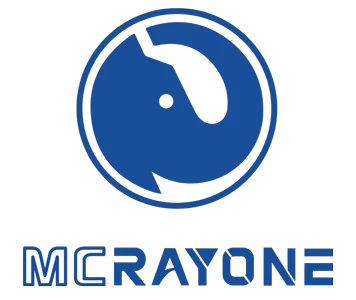Togo's Soybean Season Is Becoming Deeper
As an important transit port for trade and an agricultural base in West Africa, Togo's soybean industry is deepening and is leading the way in other agricultural sub-sectors.
Soy changes Togo's kitchen as consumption shifts
The use of palm oil has a long history in Africa, particularly in West Africa, but due to weak processing technology and a lack of mass production facilities, some households still rely on home-based palm oil production, making it difficult to guarantee healthy conditions. As imported cooking oil products increasingly enter the local market, some Togolese families have in recent years chosen to purchase imported cooking oil, including olive oil from Morocco, but at a relatively high price.
At the same time, the burgeoning soybean industry seems to be giving new industrial impetus to the Togolese cooking oil sector. The market for Togolese soybean cooking oil, particularly locally produced soybean cooking oil, is still waiting to be further opened up and developed, and more local production of soybean cooking oil will undoubtedly transform Togolese kitchens.
The game of soy versus cotton in Togo
According to the latest figures from Nouvelle Société Cotonnière du Togo (NSCT), Togo will only produce around 50,000 tonnes of raw cotton in the 2021-2022 cotton season (out of an expected 130,000 tonnes), a drop of around 25% compared to the previous year (66,000 tonnes). It is reported that cotton farmers planted cotton on only 74,000 hectares of arable land during the year, a significant reduction in the area under cultivation. In response, the industry regulator claimed that the drop in cotton production was mainly due to farmers switching production from cotton to soybeans, which are more profitable.
Meanwhile, according to the Inter-Professional Committee of the Togolese Soybean Industry (CIFS-TOGO), Togo has around 250,000 tonnes of soybeans available for sale for the 2021-2022 season, which is around 40% higher than the previous year (150,000 tonnes), of which 36,000 tonnes will be used for local processing. It is understood that all operators with export contracts have been asked to set aside a portion of their stocks for local Togolese processing units to ensure that they do not run out of soybean raw material inputs throughout the year. In turn, the guide selling price for soybeans has been increased from 186 CFA francs per kilogram in 2020-2021 to 205 CFA francs.
Togo strives to add value to the soybean chain with dual production and processing efforts
Togo is one of Europe's leading suppliers of soybeans, becoming the top supplier of organic soybeans to Europe for the second consecutive year in 2019 and 2020. According to a report published by the European Commission in 2021, Togo exported 51,000 tonnes of organic soybeans to the Schengen area in 2020, an increase of 20% compared to 2019 (42,300 tonnes) (19,700 tonnes in 2018), ahead of Ukraine (28,000 tonnes), India (15,000 tonnes) and Kazakhstan (11,000 tonnes), with other African countries that performed well included Uganda (8,000 tonnes), Benin (6,000 tonnes) and Burkina Faso (5,000 tonnes).
Also according to CIFS, Togo produced 167,000 tonnes of soybeans in the 2019-2020 soybean season. Of this, 160,000 tonnes of organic and non-organic soya are destined for export, with an export value of around CFAF 50 billion; 6,000 tonnes are for local consumption; and around 1,000 tonnes remain in the hands of producers.
Organic soya is Togo's main organic agricultural product and the most productive organic product in Togo, with around 300,000 people working in this sector. in 2019, organic soya accounted for almost 95% of Togo's organic food exports to the EU (a total of 44,684 tonnes).
In recent years, the Togolese government has increased its support for the development of the soybean industry, not only supporting production but also focusing on local processing. One of the major initiatives is the creation of the Inter-Professional Committee of the Togolese Soybean Industry (CIFS-TOGO), which brings together Togolese soybean growers, processors and traders to simplify the many steps involved in exporting soybeans from the farm to abroad, as well as actively supporting the local processing of soybeans. A series of reforms initiated by the Agricultural Finance Agency (Mifa) have also added to the development of the Togolese soybean industry.
In addition, the Togo Adicobe Industrial Park (PIA), one of the key strongholds of the Togolese government's industrial powerhouse, has played a huge positive role in promoting the local processing of Togolese exports of cotton, cashew nuts, soy, coffee and cocoa, among other agricultural products. togo Agro Resources SAU (an agribusiness company producing soybean cooking oil) is the first soybean oil production project to be launched at the PIA production project, the plant aims to help Togo become an important soybean oil exporter in West Africa, with marketing efforts aimed primarily at India, China, the United States, Europe and South East Asia.
Soybean industry, a favoured industry for young Togolese
In Togo, around two thirds of the population work in the agricultural sector, once dominated by the country's main cash crops of cotton, cocoa and coffee. But dependence on these three means that any fluctuations in production or prices can have a huge impact - so the country is diversifying its agriculture and making good gains in the soybean industry.
Togo gradually recognised the export opportunities in the soybean industry from 2013/2014 and its bulk exports of soybeans began in 2015, but over the course of a few years, the Togolese soybean industry saw a double increase in production and exports.
Now, according to the World Bank, the soy and avocado industry is a very positive sector for young Togolese people. Organic soya is particularly highly valued, as Togo is the largest source of this commodity for export to Europe. (China-Africa Trade Research Centre)








